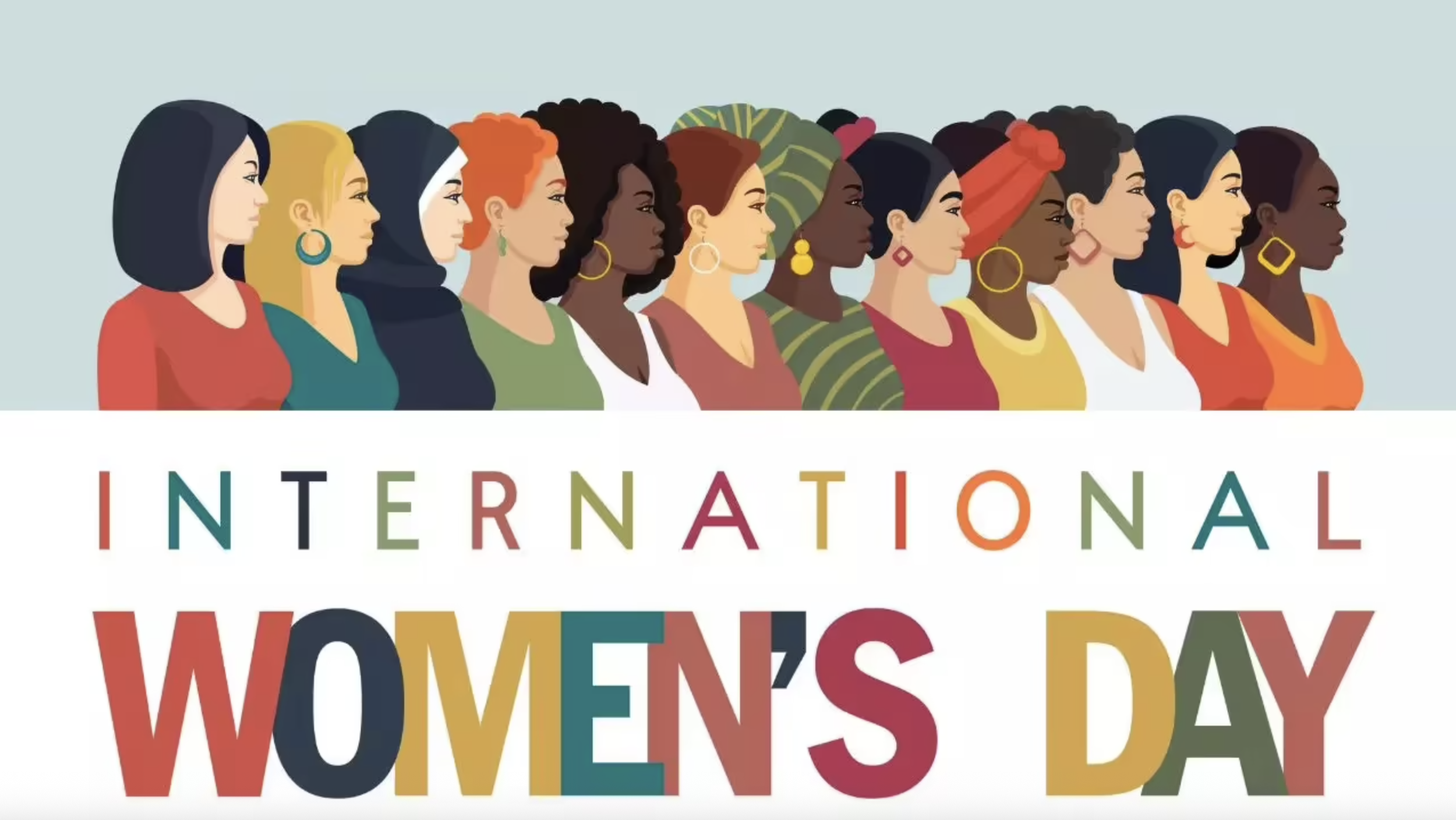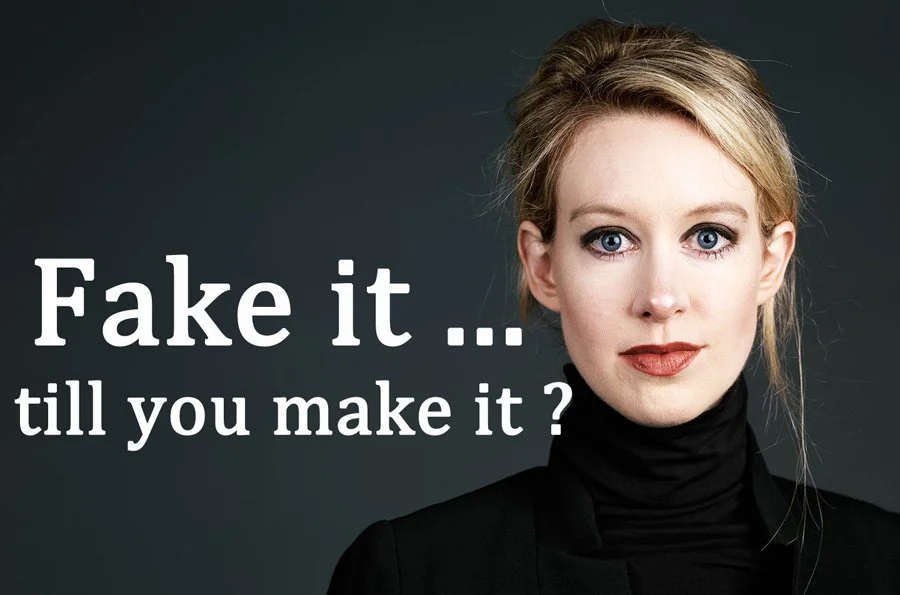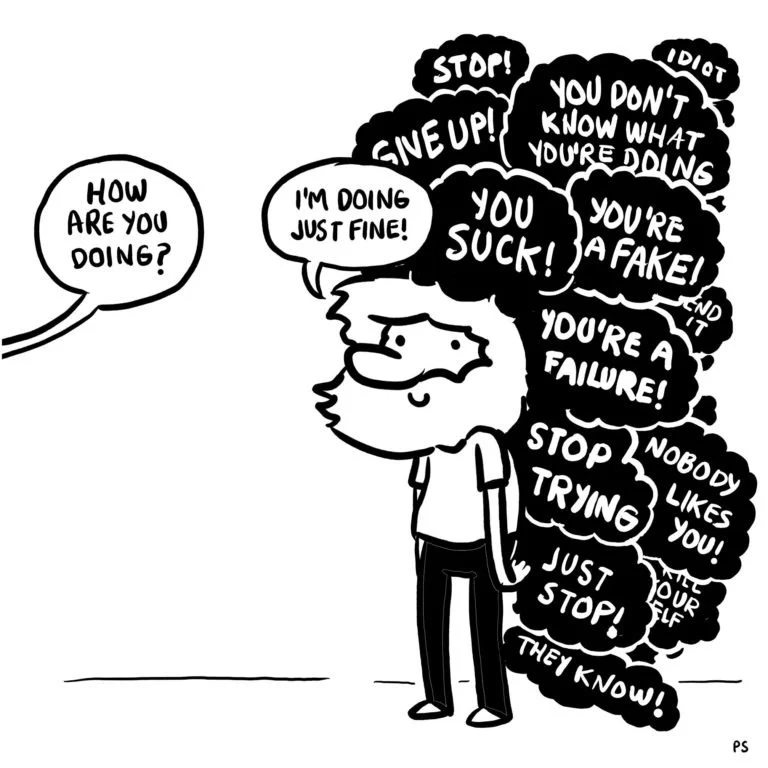Wait, don't you know it's International Women's Day? 🫠
If it sounds absurd for men, it shouldn’t be said about women. #IWD
To celebrate International Women's Day, I'm reposting something I wrote last year and will continue to post it annually until I no longer have to.
And that might take some time.
Ten things I will never read in the press:
“How does it feel to be a male CEO? What’s your message to all the young boys out there?”
“Andy, the young male boy-preneur, sits with his legs pulled up to his side.”
“Matt is boy-bossing his way to the top!”
With his big smile and branded t-shirt, Harry is no stranger to being out of his depth.”
“Chris is such a badass founder: we caught up with him in his kitchen to hear how he balances home and work.”
“How does he do it all? Mark is at the top of his game professionally but what toll is it taking on his home life?”
“Male founder, Jack, lets us in on his secret to staying svelte while also being a powerful H-EO.”
“When we catch up at his office, Tom’s fitted t-shirt shows off his muscular forearms and frame.”
“I golf and I work”: Adam explains how he balances the heavy demands of his world.”
“Ryan’s talks us through his fertility journey after his career-obsessed 30s didn’t make time for family.”
And a bonus:
“But who’s minding your kids when you’re on all these work trips, Paul?”
🫠🫠🫠
A good test of communicative bias is to flip it and see if it sounds weird:
If one of these looks strange you centered with a male protagonist, it shouldn't be said of a woman.
What's the worst advice about confidence out there?
Hot take: “Fake it ’til you make it” is the worst advice. 🚫
Hello there friends,
What's the most terrible, horrible, no good, very bad advice you can take on?
"Fake it 'til you make it".
One of the reasons I really hate this phrase is that it endorses inauthenticity as a premise; that you should pretend something to others and ultimately to yourself.
For an indeterminate amount of time.
Until someone (You? An invisible other?) judges you have "made it", which no one believes they have, anyway.
Fake it til you make it is the least powerful thing to tell someone who thinks they haven’t made it and the whole thing just feels super arbitrary.
Telling someone to be fake – not their genuine self – is just a real bummer and just makes you feel even worse.
Because you're not being you. True power doesn't come from pretense: it comes from deciding you're comfortable in your own space.
The only thing wrong with Imposter Syndrome...
The only thing wrong with Imposter Syndrome is that the wrong people have it.
...is that the wrong people have it.
I mean it.
I genuinely think that if you're feeling like an imposter, you're almost definitionally self-aware enough to realize you have some growth to do, and you're probably on a great trajectory.
The problem with this syndrome - among many - is that it pathologizes and victimizes a person who's already feeling a bit vulnerable.
As in, "Oh wow, I already felt bad and now I have this SYNDROME on top of everything else - I'm a total failure".
If you're feeling like you shouldn't be where you are, here are some things that might be going on:
🫶 You might be in an unwelcoming workplace or be working with an unwelcoming manager.
That syndrome you're feeling? It's not you; it's them.
🫶 You might feel out of your depth in a new role and struggling to catch your breath.
This means you have growth to do - start channeling energy into learning and doing, rather than focusing on the gaps.
🫶 You might wish for authority or expertise and be down on yourself that you don't have it, yet.
That's very normal! No syndrome, here. Just a very human wish to feel like you're owning your space, more.
Meanwhile, there are some people at your work (you know who they are!) who could do with a hefty dose of Imposter Syndrome.
They're the ones who have never considered its existence and likely have very low emotional intelligence and self-awareness.
So there's an upside, eh? You're not like them ;)
Safe Hands: How to Nail Your Next Interview
Job interviews aren’t just about skills — they’re about showing you’re “Safe Hands.” Discover how to communicate your vision, voice, and vibe so interviewers feel confident choosing you.
The other day a friend reached out, anxious about a job interview coming up. They’d done the prep, gone through the questions, knew the role inside out — and yet, in their words, still felt “!^@EHD.” Their message landed as what could only be described as a desperate plea for help.*
So, what to do in these high-stakes situations, especially interviews?
The best, most effective advice I can give you is actually two words: you want to come across as SAFE HANDS.
That interviewer has read your resume, glanced at your LinkedIn and really at this point wants to understand three things and all have to come across as SAFE HANDS.
Your vision (what you will bring to the job)
I’ve done this before
I know what this involves
I have a strong sense of trajectory and direction
Your voice (how you present yourself)
I am calm
I will be great — maybe even fun! — to work with
I collaborate
Your vibe (do you feel like a great contributor to the team?)
I reassure you
I validate that this is important work and I’m ready to do it
I demonstrate energy for the role — and even excitement to take it on
Remember: Show your safe hands through your vision, voice and vibe, and you’ll be all set
“I don't want to step on anyone's toes” holds women back
If you’re worried about stepping on toes, you probably already have the empathy and communication skills you need. Here’s how to make the ask—and take your space—anyway.
Have you noticed that women's power in communication is often conceptualised as relating to space and territory?
"I don't want to step on anyone's toes" is a great example: it implies overreach and moving into someone else's space.
Woman are importantly often still positioned as being outside of power.
When we “break the glass ceiling” (or fall off the glass cliff or bump into a glass wall, for example,) there’s an assumption that we were in one place and had to move to another to have power; it was never inherently available to us.
Author and social commentator Elise Loehnen notes, “Women are expected to ‘know their place’—firmly outside, yet supporting circles of power—and abide by it.”
I hear the phrase "step on someone else's toes" so often, whether it's about asking for a promotion, sharing credit or asking to own a particular project.
Chances are if you're asking the question in the first place, it's an excellent indicator that you have communicative intelligence: you're already wondering how your words or your ask might affect others.
And that's great!
What you then need to decide is whether there's a way to make that ask while also being true to the thing you want.
And there likely is - you've just got to start by making the ask and taking the space accordingly.
Leadership is often encoded as male. Why?
Just because most public communicators of the past were men doesn’t mean they own leadership. How you show up is yours to define.
The only reason we encoded leadership attributes as masculine in modern history was that men were the only ones allowed to lead.
Obviously that was disastrous for women but it also did men a great disservice.
Patriarchy is bad for everyone.
Limiting the ways we can show up - and bullying other people out of their space and power - is not the way to bring out the best in any leader or organization.
And also having a literal race to see which billionaire has the biggest rocket is just embarrassing.
Whenever you Google Image Search “CEO” or “negotiation” or even “leadership”, you tend to see masculine versions of power - or even just men! And with the advent of AI, its only gotten worse.
But it’s important to remember that just because most of the public communicators of the past were men, doesn’t mean that they ‘own’ the way you show up - as a woman or a man or a non-binary person today.
Write the best email of your life
Tips for writing emails that get opened, read and clicked
One of the most common things I'm asked is how to write better emails.
It's one of the things we do every day, yet many of us haven't thought hard about how we might make them really shiny.
So here's a few things to avoid:
1. Keep it warm but professional
I recently heard from a friend who has an HR director who signs off her emails "Love Jenny".
I adore this - because who couldn't love Jenny?! - but it's probably not the norm for most workplaces.
You could still inject warmth - “so good to see you this past week”, “can't wait to catch up soon”, “excited for the weekend” etc are all not necessary to the email, but add a little humanity.
2. Proofread!
I know, I know, but honestly, take a minute just to scan for repetition or anything that doesn't really earn its spot on the page.
I also always say not to spend too long on your comms, so this shouldn't be an hours-long exercise, but just check that you have their name right, that you've said what you needed to in a concise way, and there aren't any glaring typos. And get acquainted with the 'undo send' button which saves me on a weekly basis!
3. Signpost
Some people use the subject line of the email super effectively, for example:
ACTION NEEDED: Signature needed by EOD
ADVICE PLEASE: Could you look over this before I send to client?
UPDATE: FYI on upcoming meeting.
Think about the whole email being read on a phone and being scrolled through, fast.
Give clear signposts - each sentence should be working hard for you, and leading the sender through a logical flow.
Don't be nervous to send email - it's a great way to make a good impression and nail your asks.
This week’s Dear Kate
Dear Kate,
While discussing my work with my team lead, I am often do what I call a 'word vomit', where I upend all the information I have on them.
I have since started to be mindful of such behaviour and when I catch myself doing it, I tell the audience that, 'Sorry, let me take a step back and start over'. I wonder if this sounds silly or unprofessional because the two times, I have done this the person laughed.
Thanks,
Naureen
Hi Naureen,
I think you're halfway to solving this problem - because you are aware of it happening!
Knowing you're doing something and noticing it is always the first way to re-think a communication habit.
I often coach people to consistently notice first, then decide if you want to change anything, later.
The fact that people might laugh isn't necessarily about you - sometimes it's discomfort or embarrassment, or maybe relief, that you're giving them time to catch up!
Two things I'd recommend here.
Think about the structure you might use to talk to your audience. Are you using a clear headline, example and what's next structure? This will help contain the 'vomit' as it were, and give you an off-ramp to stop talking, too.
Physically slowing down will also help as it gives you time for your mouth to catch up to your brain - you'll feel more in control of your message, too.
Good luck and go get 'em!
See you next week,
Kate 💫









